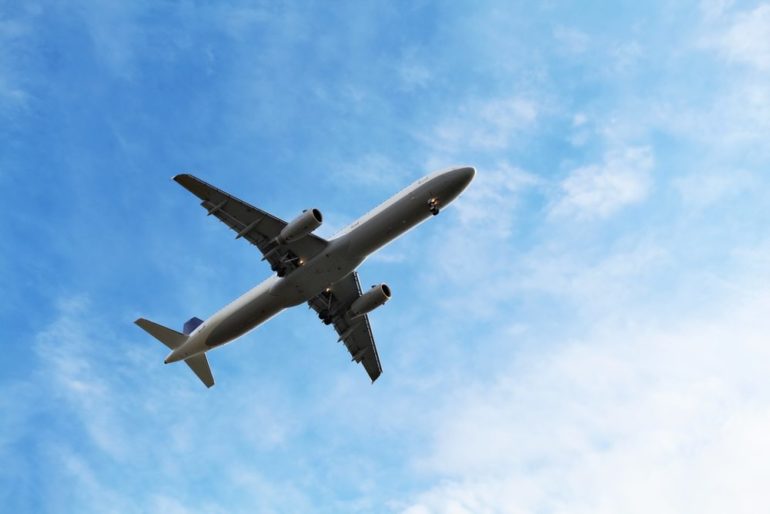Bott and Co, the UK’s leading flight delay compensation law firm, has found that the number of delays and cancellations for flights departing UK airports has increased by 72% since 2015, affecting hundreds of thousands of passengers.
In what was a turbulent and unpredictable year for flight passengers, 2018 saw the biggest increase of 33% for flights cancelled or delayed over three hours compared to the previous year, when only 1.31% of flights were affected.
Reasons for some of the turbulence last year included cabin crew strikes, reoccurring drone chaos, tightly packed flight schedules and uncertainty over the looming Brexit fiasco, which has continued into 2019.
The data revealed that passengers travelling with some of Europe’s most popular airlines were the worst affected, with certain airlines showing a year on year increase in travel disruption.
Norwegian Air stood out as having the biggest upsurge; their passengers suffered 754% more delays and cancellations in 2018 than in 2015. Spanish low-cost airline Vueling had the second biggest increase of 608% followed closely by Air France with 536%.
Of the British airlines that made the ‘poor punctuality’ list, British Midland Regional Limited, TUI, Jet2 and easyJet all had over 100% increases in delays and cancellations over the four year period.
The data saw Virgin Air as the only European airline to have less delays and cancellations in 2018 than in 2015 with a 3% reduction.
Below are the airlines ranked worst to best for the increase or decrease in delays and cancellations leaving UK airports from 2015 to 2018.
| Airline | % Increase/Decrease of delays and cancellations (2015 to 2018) |
| Norwegian Air | + 754% |
| Vueling Airlines | + 608% |
| Air France | + 536% |
| British Midland Regional Limited | + 463% |
| TUI | + 394% |
| Jet2.com | + 320% |
| KLM | + 251% |
| easyJet | + 166% |
| Thomas Cook Airlines | + 97% |
| Wizz Air | + 95% |
| Flybe | + 60% |
| TAP Portugal | + 53% |
| British Airways | + 35% |
| Lufthansa | + 25% |
| Virgin Atlantic | – 3% |
The firm found that of the airlines that became less punctual in 2018, in some cases these airlines routinely defend eligible claims and continue to ignore the regulation.
Coby Benson, Flight Delay Compensation Solicitor at Bott and Co said: “Some of Europe’s major airlines are simply not doing all that they can to minimise delays. The proof’s in the data.
While some events are outside of the airlines’ control, there are many instances of flights being disrupted by factors within their control. Managing disgruntled staff, that lead cabin crew strikes and cramped schedule times that result in passengers being faced with chaos at airports, are just a few examples.”
Benson continued: “EU Regulation 261/2004 was introduced in 2004 to protect passengers and act as a deterrent to prevent significant delays and cancellations occurring in the first place.
The data does offer some good news for passengers. Some airlines have managed to reduce the amount of delays and cancellations. This demonstrates that having a regulation in place is working to some extent at dissuading airlines from delays.”
Air travel intelligence company, OAG (Official Aviation Guide) has just published its annual airline and airport punctuality league for on-time performance in 2018. No medium or large UK airports appeared in the top 20 lists for high punctuality ratings, based on flights arriving and departing.
Holidaymakers with flight delays over three hours and cancellations may be eligible for up to 600 Euros in compensation per passenger if they are caused by circumstances that are not considered extraordinary.
For cancelled flights with more than 14 days’ notice, passengers are entitled by law to a full refund of the cost they paid for the flight, a replacement flight or comparable transport arrangements at the earliest available opportunity. For flights cancelled within fourteen days of the departure, the same applies but travellers may also be eligible for compensation if the reason for the cancellation is not extraordinary.
Many passengers are still not aware that regardless of the reason for the hold up, if a flight is delayed between two and four hours, airlines have a duty to provide passengers with adequate care and assistance. This includes food and drink vouchers as well as two telephone calls and emails. Passengers delayed overnight must be provided with accommodation, including transport to and from the airport.
Passengers can use the firm’s flight checker to get a free, instant decision on whether their flight delay or cancellation is claimable under EU Regulation 261/2004.
A Norwegian spokesperson said to LondonLovesBusiness, “We fly 37m passengers annually, including 6m UK passengers from London Gatwick, Edinburgh and Manchester Airports to 40 destinations worldwide.
“These inaccurate figures do not match our data and does not take into account that Norwegian UK didn’t operate in 2015, Norwegian Air Shuttle had a significant reduction in flights and that Norwegian Air International flights had significantly increased between 2015 and 2018.
“Norwegian’s punctuality in 2019 has improved and it must be remembered that frequent air traffic control strikes across Europe, drone activity, capacity constrained airports and adverse weather conditions are beyond the control of airlines and invariably impact flights.
“Norwegian is committed to keep improving punctuality and where factors are within our direct control, we have introduced measures to continue delivering a smooth, efficient experience for our customers.”


